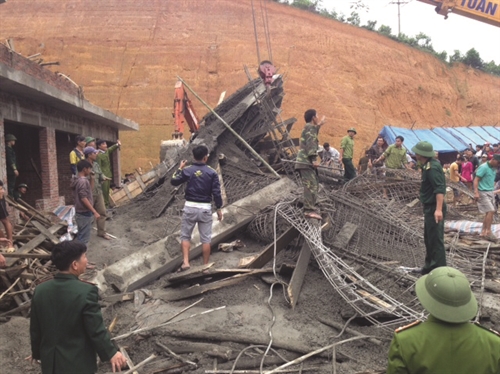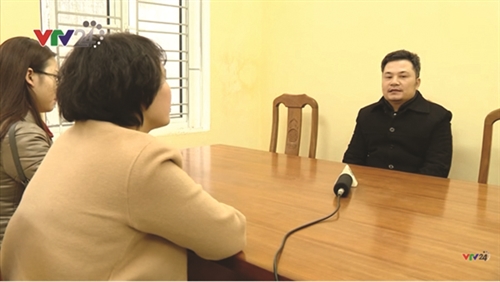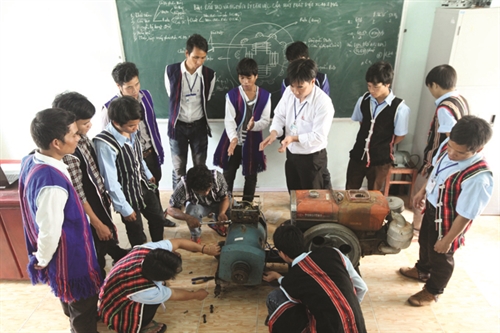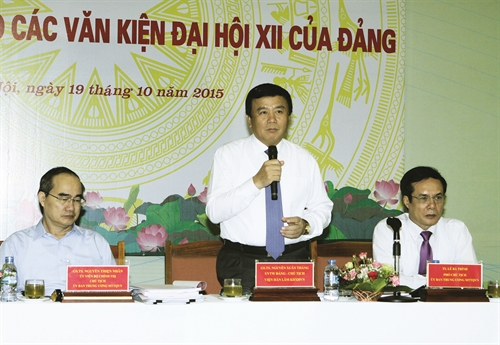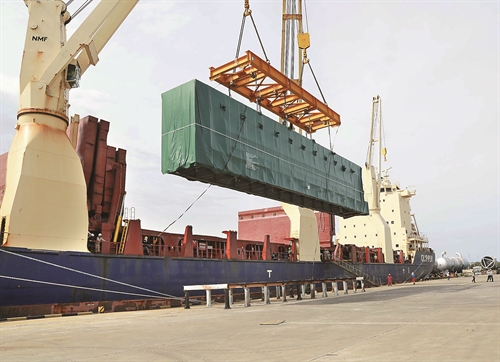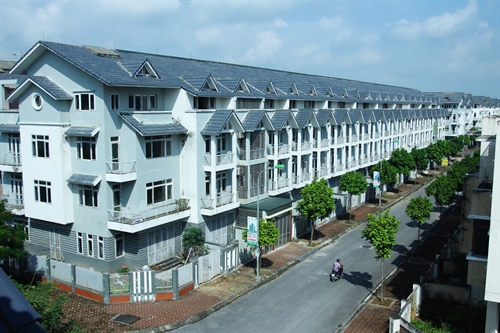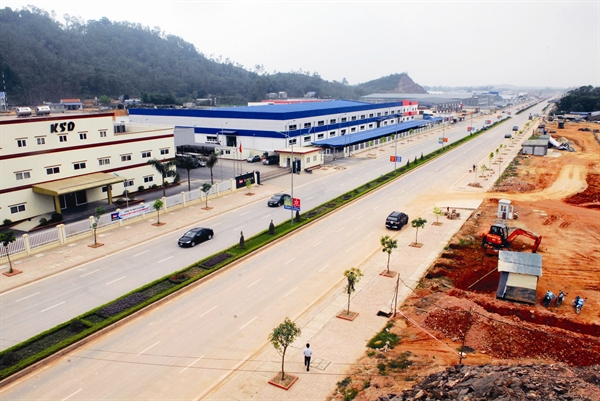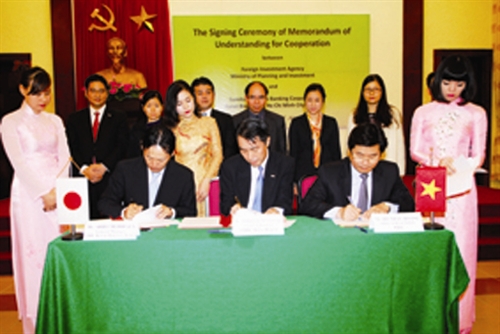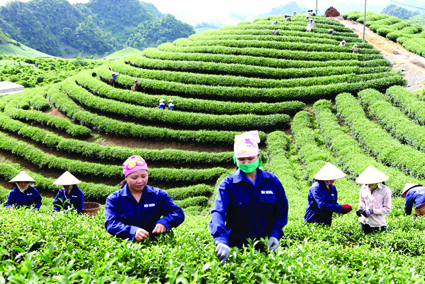>>Party urges greater efforts to fight corruption
Towards Transparency (TT)
Transparency International (TI)’s National Contact in Vietnam
In 2003, Vietnam signed the United Nations Convention against Corruption (UNCAC) and was among the first member states to sign the Convention - one of 19 international treaties directly about criminal issues deposited at the United Nations (UN). Article 13 of the Convention provides in detail the “participation of society” in the fight against corruption and highlights the responsibilities of each State Party to promote the participation of individuals and groups outside the public sector.
After nearly seven years since the Convention was ratified on June 30, 2009, by the President of the Socialist Republic of Vietnam and officially came into force for Vietnam on September 18, 2009, how far is Vietnam implementing the commitment to ensuring the participation of society? What Vietnam should do to ensure the role of society in the fight against corruption?
Participation of society in UNCAC
The Convention was adopted by the General Assembly of the United Nations on October 31, 2003, and entered into effect on December 14, 2005.[1]
Article 13 of the Convention provides details on “participation of society” in the fight against corruption and highlights “Each State Party shall take appropriate measures, within its means and in accordance with fundamental principles of its domestic law, to promote the active participation of individuals and groups outside the public sector, such as civil society, non-governmental organizations and community-based organizations, in the prevention of and the fight against corruption...”
In addition, Article 13 also provides for measures to enhance the participation of society, such as increasing transparency in the decision-making process; the people’s access to information; public information and education concerning corruption; protection of national security, public health or information on anti-corruption agencies, etc.
Participation of society in the fight against corruption in the laws of Vietnam
In the statement on the implementation of the UNCAC submitted to UN, the Ministry of Foreign Affairs confirmed that Vietnam shall not directly apply provisions of the UNCAC and the implementation of the provisions of UNCAC must comply with the Constitution and law of Vietnam and on the basis of bilateral or multilateral cooperation agreements with other countries.[2] Therefore, Vietnam shall incorporate the provisions of UNCAC in domestic law and be obliged to implement such provisions.
Vietnam incorporated Article 13 of the UNCAC in the 2005 Anti-Corruption Law (amended in 2007 and 2012) and the legal documents guiding the implementation of the Law. Chapter VI of the Anti-Corruption Law provided the regulations on “The role and responsibility of the society in preventing and combating corruption”. In particular, Government Decree No. 47/2007/ND-CP dated 27 March, 2007, detailing and guiding the implementation of a number of articles of the Anti-Corruption Law, prescribes the role and responsibility of the society in the prevention and fight against corruption.
However, according to the provisions of Chapter VI of the Anti-Corruption Law and Decree 47, the “participation of society” is only referred to the responsibility of four target groups: (i) the Vietnam Fatherland Front and its member organizations; (ii) the press; (iii) enterprises, business associations, and professional associations; (iv) citizens and People’s Inspection Boards. These groups have not fully reflected the contents of Article 13 of the UNCAC since the participation of civil society organizations and non-governmental organizations in the corruption prevention and fight is not mentioned.
Under Decree 47, social organizations may request state agencies to provide information, protect complainants and denouncers of corrupt acts. The Decree also outlines the responsibilities of state agencies in coordination with the Vietnam Fatherland Front at all levels to promote the participation of citizens and implementation of grassroots democracy through propagation and legal dissemination.[3]
Regarding the measures to strengthen the participation of society, Decree 47 partly reflected the ones set forth in Article 13 of the UNCAC. However, Chapter VI of the Anti-Corruption Law and Decree 47 have not demonstrated: (1) whether the role of society in the fight against corruption is decisive or secondary; (2) the nature of the equal partnership between the State and society; and (3) the rights and conditions to ensure the participation of social subjects in the fight against corruption.
 |
| Ho Chi Minh City Party Committee Secretary Dinh La Thang addresses a conference to review the City’s anti-corruption work in 2015 __ Photo: Thanh Vu/VNA |
The role of society in the fight against corruption in practice
The Vietnam Fatherland Front
For a decade since the passage of the Anti-Corruption Law, the Vietnam Fatherland Front and its member organizations have conducted many legal dissemination activities and educated integrity for the people in diverse forms, especially the integration of activities in the project “Developing and promoting the dissemination and advocacy of law observance in the community” launched across the country since 2006.
However, the Vietnam Fatherland Front has not yet developed regulations on coordination among its member organizations in the fight against corruption. In particular, prior to January 1, 2016, the Vietnam Fatherland Front has no autonomy in performing its oversight role as in fact it has no right to form independent oversight teams (Clause 2, Article 12 of the 1999 Law on the Vietnam Fatherland Front).
The 2015 Law on the Vietnam Fatherland Front, which came into effect on January 1, 2016, grants the Vietnam Fatherland Front the right to form oversight teams. Accordingly, the Vietnam Fatherland Front may proactively form an oversight team when it detects violations of law or corrupt acts (Clause 2, Article 27 of the 2015 Law on the Vietnam Fatherland Front).
Besides, a law on associations, or more precisely, the law on the right to form associations and the role and social functions of civil society organizations, has not yet been passed, despite the fact that many drafts have been discussed.[4] It is also an important factor limiting the active participation of civil society organizations in the fight against corruption in Vietnam.
The press
In the last five years, anti-corruption communications have been pushed up, the frequency and volume of information are enormous, forms of communication are diversified and constantly renewed, such as specialized pages and columns on anti-corruption activities, public administration reform; online seminars on the Anti-Corruption Law, and supporting forums for people in detecting and denouncing corrupt acts, etc. In addition, the press has contributed positively to the fight against corruption through the supervision of anti-corruption law enforcement or the involvement in the investigation of potential corruption cases. Some prominent cases involving the press were publicized such as the cases of bribery in the East-West highway project, land-related corruption case in Do Son (Hai Phong), or the case of Song Hau farm, etc.
However, press agencies in Vietnam act as the voice of the public sector (Article 1 of the Press Law 1989, amended in 1999, Clause 1 of Article 4 of the 2016 Press Law). Therefore, it is considerably difficult for Vietnamese press to be objective and independent when opposing violations of the law of agencies, organizations and individuals in the public sector. In fact, press agencies are imposed pressure by public agencies and departments in reporting prominent corruption cases, the sweeping rings of crime, or cases involving high-profile public employees. In practice, journalists and reporters who reported corruption cases have been intimidated, victimized, assaulted or obstructed in the performance of their works. This leads to psychological fear or avoidance of disclosure of corruption-related information by some journalists, reporters and press agencies.
Enterprises, business associations, professional associations
The national anti-corruption strategy toward 2020, the Anti-Corruption Law and Decree 47 emphasized and regulated the role and responsibility of enterprises and business associations in the fight against corruption. However, these provisions focus primarily on encouraging enterprises and associations to disseminate law and build a fair and corruption-free business culture. In fact, these activities are only carried out within the framework of associations, groups, state corporations and some large corporations.
Since 2010, the Vietnam Chamber of Commerce and Industry (VCCI) has carried out the project “Building consistency and transparency in business relations in Vietnam” with the aim to mobilize the business community to take actions to improve the business environment and cooperation with the concerned government agencies to limit the conditions likely to increase corruption; as well as make specific policy recommendations. Particularly, in recent years, Towards Transparency (TT), the national contact of Transparency International (TI) in Vietnam introduced the Business Principles for Countering Bribery to small and medium-sized enterprises in economic centers such as Hanoi, Ho Chi Minh City and Da Nang.
However, there is still a big proportion of Vietnamese enterprises involved in corruption. The underlying cause is that most of them still attach great importance to their own interests. Preventive measures against corruption have not yet been widely adopted in business communities; in which there are no mechanisms to encourage the detection and denunciation of corrupt acts or other forms of commending and rewarding individuals who have achievements in detecting and combating corruption.
Besides, measures to enhance the openness and transparency in the business environment of the state agencies are still limited as 70% of enterprises in Vietnam need personal relationships and connections to access the relevant information held by the state agencies.[5]
People’s Inspection Board
Under the Anti-Corruption Law and Decree 47, the People’s Inspection Board supervises the implementation of the anti-corruption law in communes, wards, towns and at state agencies, public service units and state-owned enterprises across the country.
To date, People’s Inspection Boards have been established in most communes, wards and towns in 63 provinces and cities nationwide. They have conducted many activities such as: thematic discussion and experience sharing, allocating tasks of people’s inspection boards in each group of communes and assigning specific supervising staff; professional training for members of People’s Inspection Boards; placement of suggestion boxes in the residential areas to collect people’s reflections on negative practices; organization of policy dialogues between the local government and the people, etc.
However, the capacity and the supervising ability of the People’s Inspection Boards are limited as their members are directly elected among citizens in the residential areas rather than the qualified and professional ones. Meanwhile, there are no specific and clear provisions on the responsibilities of any agency which can provide technical and professional guidance on anti-corruption for the Boards.
People’s Inspection Boards in public offices, non-business administrative units and state-owned enterprises are difficult to exercise their right to supervision due to the fact that subject to the supervision are the heads and leaders of those agencies, units or executive boards of enterprises. At a number of agencies and organizations, the leaders do not support and facilitate the performance of the People’s Inspection Boards. This prevents the Boards from performing their functions and tasks as a democratic independent institution. Operational funding is also a drawback of the People’s Inspection Boards.
Citizens
The Anti-Corruption Law and Decree 47 specify the responsibilities of citizens in the fight against corruption in general and in denunciation of corrupt acts in particular; and confirm that denouncers of corruption are protected by the authorized state agencies when there appear signs of intimidation, revenge or retaliation against them. The 2011 Law on Denunciations also has a chapter regulating the protection of people who report corruption.
To encourage people to report and fight corruption, the Government Inspectorate issued Circular No. 07/2014/TT-TTCP accepting anonymous written complaints; the Government Inspectorate and the Ministry of Home Affairs also issued Joint Circular No. 01/2015/TTLT-TTCP-BNV regulating the reward toward individuals who have made outstanding achievements in denouncing corrupt acts.
According to 2013 Global Corruption Barometer - Views and Experiences from Vietnam citizens[6], only 38 percent of Vietnamese citizens who were surveyed are willing to report an incident of corruption; this is the lowest among surveyed countries in Southeast Asia. “It wouldn’t make any difference” (51 percent of respondents) and “I am afraid of the consequences” (28 percent of respondents) are the most common reasons that preclude Vietnamese citizens from reporting corruption.
Although the role of the citizens in the fight against corruption is regarded as a key pillar; to date there are no specific statistics about the corruption cases which were detected, reflected and reported by citizens.
Recommendations to ensure participation of society in the fight against corruption in Vietnam
After ten years of implementation of the Anti-Corruption Law, in order to continue promoting the role of society in the fight against corruption and ensuring the effective implementation of the provisions of UNCAC, Vietnam needs to focus on improving some of the key issues as follows:
Strengthening the cooperation between the State and society in fighting against corruption
Currently, the Anti-Corruption Law and the relevant legal documents only reflect the views and general orientations rather than specific and feasible guidelines to encourage social organizations and citizens to involve in the fight against corruption.
The Vietnam Fatherland Front should also develop coordination mechanisms among the Front and its member organizations with competent state agencies in anti-corruption; and be more active in forming oversight teams when corruption cases are detected.
The press agencies also need to develop mechanisms for coordination with the anti-corruption authorities in order to enhance the access to information, sharing and use of information in a timely and accurate manner.
In particular, there are no effective mechanisms for coordination among the state agencies with organizations and individuals outside the public sector; and no legal guarantees for the promotion of the role of civil society organizations other than the Vietnam Fatherland Front, enterprises and professional associations, press, and People’s Inspection Boards. The early passage of the Law on Associations will create a favorable legal framework and further promote the role of civil society organizations in fighting against corruption.
Improving mechanisms for receiving and handling denunciations and protection of corruption whistleblowers
The legal provisions on the protection of whistleblowers disperse in too many legal documents with different legal effects; these provisions are deemed fundamental, rather than the specific, clear and guiding regulations. Therefore, there is an urgent need to establish or specifically assign a competent and specialized authority in charge of protecting whistleblowers and continue improving procedures for handling whistleblowers’ requests for protection and applying specific measures to protect their relatives, property, honor, dignity, work, health and lives.
In Vietnam and other countries in the world, anonymous denunciations are regarded as an important source of information. Solving or not solving denunciations in which the names and addresses of the denouncers remained unknown is a complex issue. In order to solve these problems, the law should classify the anonymous denunciations into categories: not to be considered, subject to handling and may be handled.
Besides, the Vietnam Journalists Association should also have mechanisms and specific measures to promote and protect journalists who have been bravely fighting corruption; and report objectively, promptly and effectively on corruption cases.
Promoting the development of the anti-corruption culture in the political system and in all people
One of the important and urgent requirements is to institutionalize and strictly implement the provisions on response to citizens’ comments, recommendations and reflections related to corruption; timely notify the results of the denunciation handling to the denouncers and concerned people. Thus, people will have to send their comments to the right place, avoiding sending to the echelons higher than the law-prescribed ones, meandering and overlapping.
Besides, the responsibilities of the heads of state agencies to account for their authorized powers in receiving and handling complaints and denunciations against corruption should be stipulated.
Establishing a fair and corruption-free business culture; developing and implementing the code of conduct for officers and employees, workers in enterprises; developing and implementing a supervision mechanism and internal control are also necessary.
It is also important to continue promoting and diversifying forms of communication with innovative, flexible contents on policies and laws and anti-corruption work in practice to citizens, raising awareness of self-defense and proactively taking actions against corruption. In particular, integrity and anti-corruption education for the youth should be taken into account in order to ensure the effectiveness and sustainability of the fight against corruption.-
